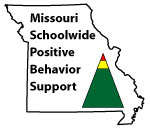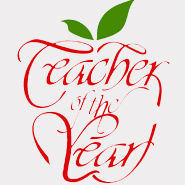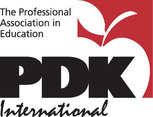But we would rather, first, discuss our reactions to one another.
There are ways in which we grow up that form who we are as adults. When we look back, it's easier to see how our friends affected us. We see how a teacher broke us down. We see how our parents' parenting changed how we see the world.
But as children, we likely did not see all of this happening. We simply reacted.
The doctor hammered on my knee once, and my leg kicked. I didn't have to think about it. I didn't take special courses to learn how to kick when hammered on. I just kicked. I could have controlled it, but I didn't.
The same occurs with fourth graders. They see things, they hear things, they smell things, and they immediately react without restraint. Without restraint they react. I suppose it's part of learning. If I don't stop what I am doing as a teacher and address the reaction, I feel like I have failed in a major part of my job. As a teacher, I am a partner with the community in which I live. I have an obligation to try everything I can to develop good citizens.
I saw a statistic this week: it said kids make up 20% of the population, but they make up 100% of the future. To a reflective educator, that hits hard. I puts me in mind of the statement made more than 20 years ago by the grandmother of a boy in my second grade class: through tears, she told me that I was the only calm male influence for her grandson. Obviously, her words stuck with me. They pressed on my shoulders as I realized their weight.
So when I see fourth graders reacting to every little thing that is said and everything that catches their attention, I need to react to their reactions.
For example, last week some students found a spider on the playground. No big deal, right? It might even be expected that there is a high probability of a spider camping out in the dark, shadowy protection of a slide. But instead of leaving the spider alone, they reacted. Rather than observing the spider with curiosity, they reacted. And a mob gathered. One would have thought a fight had broken out at the local saloon.
The crowd gathered with pitchforks and protest signs. Some simply wanted to see what was happening, but others wanted to mess with the spider. Someone wanted to show bravery by touching the thing. Someone else wanted to be silly and flip the spider onto someone else. Another person just wanted to stomp on it. Everything that happened was a reaction to everything else. And members of the mob turned on each other. Groups shot out of the mob to tell the teacher on duty, all talking at once as you might suspect. Only in an elementary school, right?
But you can see the progression of today's "society", can't you? The playground is a microcosm of everything that happens on the cable news channels. The same kind of thing happens during protests of injustice or riots rooted in disagreement. The same thing happens on black Friday, when shoppers stomp to death a clerk at Target just to be the first to pick up their special deals.
We as teachers must be ready to reflect with our students about thinking reasonably during such crowd formations. Students must be made aware that they only assembled in the mob because their curiosity got the better of them. They must start to think in such situations more about safety for themselves and others. We have to get them to think of alternative reactions. We have to get them to consider that they do not have to follow the crowd when the crowd is being reactionary.
How many people have done things just because they saw the larger group doing it? How many people take the easy way out of allowing the popular view to make decisions for them?
I know...I tend to think big about little things (spiders), but I think there is an opportunity for learning big things from little experiences.
Every time someone makes a nonsensical comment, I do not have to react with a comment of my own. When 20 kids all react in such a way, chaos ensues. Every time someone passes gas, I do not have to laugh. Likewise, I do not have to critically point out other people's mistakes my neighbor. Where is the benefit to any of these? Do I feel better about myself when I belittle others? Why else would I comment, laugh, and criticize unkindly?
Reactions matter.
Safety matters.
Kindness matters.
The future matters.
We will continue to develop children in our classrooms by openly discussing such matters with positive intents.






































